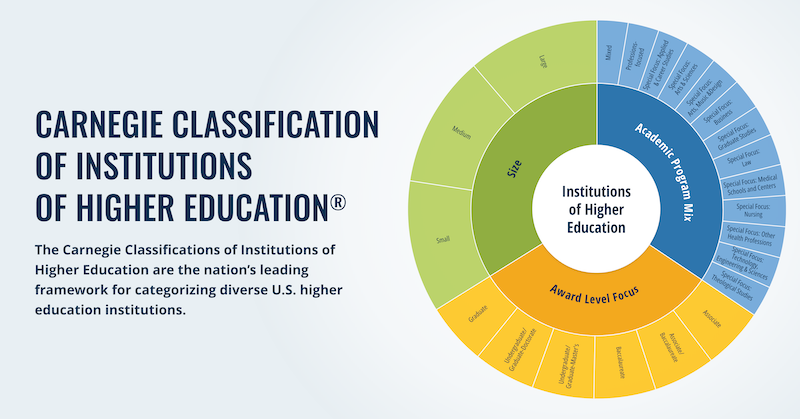The aim of the Carnegie Postsecondary Commission (CPC) is to identify the most powerful levers to propel millions more students, particularly those furthest from opportunity, through postsecondary education into purposeful careers. The Commission will amplify the highest leverage methods: scalable, affordable, career-aligned postsecondary models; technology-powered teaching and learning modalities; pathways…
Carnegie Foundation for the Advancement of Teaching Supports the Upward Mobility of Underrepresented Students: The Carnegie Postsecondary Commission
June 14, 2023
STANFORD, CA (June 14, 2023) – The Carnegie Foundation for the Advancement of Teaching, in partnership with the XQ Institute, today announced the members of the newly established Carnegie Postsecondary Commission. Composed of diverse leaders in higher education as well as K-12, the Commission aims to identify the most effective ways to help millions of low-income, underrepresented, and first-generation college students achieve their postsecondary education goals and secure meaningful careers. The Commission will focus on scalable, affordable, career-aligned higher education models; technology-powered teaching and learning methods; pathways that blur the boundaries between secondary, postsecondary, and work; and policy ideas that promote equity and greater opportunity for low-income, underrepresented, and first-generation students.
For the next two years, the Commission will create a series of “action papers” to provoke critical discussion, create visibility, and spur action for innovative solutions to make the postsecondary sector a more vital engine of upward mobility and economic opportunity. The Commission will also promote and draw attention to some of the country’s most promising ideas, models, and solutions so that they may be scaled widely in more settings.
The Commission will also provide guidance on the issuance of newly constructed Carnegie Classifications for every institution of higher education (IHE) in the nation, in partnership with the American Council on Education. The aim of this endeavor is to focus IHEs on their essential purpose, catalyze public capital distribution to institutions that accelerate economic mobility, shape federal and state policy, and learn from institutions that are true generators of opportunity.
“This Commission mobilizes a cohort of innovative leaders who understand that the educational ecosystem in this country is falling far short of its promise for students from all walks of life,” says Commission Co-Chair Shirley M. Collado, President & CEO of College Track and Carnegie Senior Fellow. “By pulling this group together, we are harnessing the lived expertise of thinkers who frequently operate outside of the usual channels—leaders whose collective ingenuity and vision will translate into the bold solutions we need to effect systemic change.”
Co-Chair Dr. Tuajuanda C. Jordan, St. Mary’s College of Maryland President states, “An engaging and holistic educational experience is the great democratizer. In this country, we have the potential to make this a reality but have continually fallen short. Solving persistent challenges requires an understanding of the systems that perpetuate the issues, experience successfully navigating the complexities, and a propensity for creative thinking. The members of the Commission exhibit all these characteristics. Individually, each has forged a path that has lowered the barriers to success for future generations.”
Carnegie Foundation President, Dr. Tim Knowles shares, “Building more affordable, experiential and engaging pathways from high school to postsecondary education and career is essential to the American economy and democracy. The Carnegie Postsecondary Commission brings together a group of extraordinary leaders — spanning K12 and higher education — to help shape and propel the ideas that can make this happen.”
About the Carnegie Foundation
The mission of the Carnegie Foundation is to catalyze transformational change in education so that every student has the opportunity to live a healthy, dignified, and fulfilling life. Enacted by an act of Congress in 1906, the Foundation has a rich history of driving transformational change in the education sector, including the establishment of TIAA-CREF and the creation of the Education Testing Service, the GRE, and the Carnegie Classifications for Higher Education. The Foundation was also instrumental in the formation of the U.S. Department of Education and Pell Grants, and mostly recently in the use of networked improvement science to redress systemic inequities in educational opportunities and outcomes.






